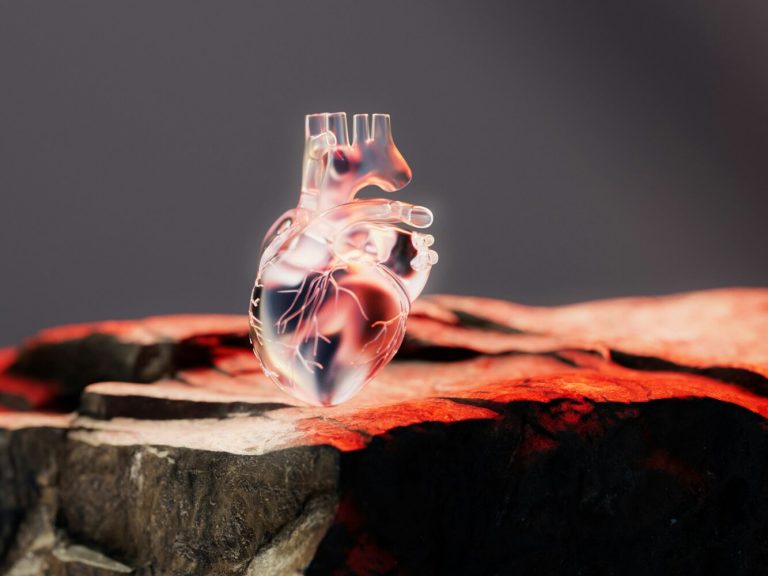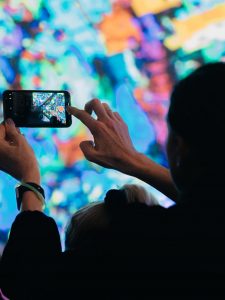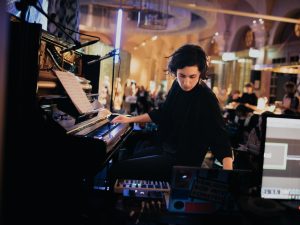Welcome to Science Today – a mix of cutting-edge research, mingle and Stockholm’s best DJs.
This time we make an excursion from the Nobel Prize Museum to Norrsken House on Birger Jarlsgatan in Stockholm. Norrsken is a non-profit foundation and venue that promotes positive change through entrepreneurship and new technologies. Please note that the program can only be booked by members of the Nobel Prize Museum and Norrsken.
This time, we focus on the human heart and invite doctoral students and postdocs from Karolinska Institutet, KTH Royal Institute of Technology, and Stockholm University to share their latest findings and insights. Explore today’s heart research, shaping tomorrow’s medical landscape.
Presentations and the conversation on stage will be held in English. The conversation is moderated by Olof Somell from the Nobel Prize Museum.
Tonight’s speakers
Ali Mahdi, Postdoc, resident in cardiology, Department of medicine at Karolinska Institutet.
Topic: The role of red blood cells in cardiovascular disease
Cardiovascular diseases, including heart attacks, remain a leading cause of death. While red blood cells (RBCs) are primarily known for oxygen and carbon dioxide transport, our research has uncovered their previously unknown role in cardiovascular disease. We have found that dysfunctional RBCs contribute to heart and blood vessel damage, particularly in individuals with type 2 diabetes, hypercholesterolemia, and COVID-19. Our mission is to translate these findings into effective therapies, improving cardiovascular health for high-risk patients.
Elias Sundström PhD, researcher, Department of Engineering Mechanics, Royal Institute of Technology
Topic: Computational Modeling of Aortic Valvar Disease
The most common congenital heart defect is called bicuspid aortic valve (BAV). It occurrs in approximately 1% of the population. How it’s treated with surgery vary based on institutional preference and expertise, with no clear optimal option. Aortic valve repair to restore the normal root geometry is gaining popularity in adults but lacks data in adolescents and young adults. While echocardiography provides insights into aortic valve disease, it has limited predictive value for surgical outcomes. This research aims to assess how changes affect valve function, hemodynamics, and tissue biomechanics using a computational model to improve repair techniques.
Amanda Gonzalez Bengtsson, PhD, Interdisciplinary research initiative at the Department of Psychology on AI and relationship research at Stockholm University
Topic: How to Love with Both Brain and Heart
Why do so many smart people fall for the wrong partners – and can science help us choose better? This presentation explores the intersection of psychology, physiology and AI in modern love. Presenting an interdisciplinary initiative lead together with Professor Per Carlbring (Department of Psychology), where we are developing and preparing to test an AI-assisted tool designed to help users identify emotionally available and stable partners on dating apps
Programme
17:00–18:00 Mingle, music by DJ Merilin
18:00–19:00 Presentations and conversation on stage
19:00–21:00 Mingle, music by DJ Merilin
Tickets
Book your tickets here. A valid membership is required for a ticket booking. Please show your membership card at the entrance. If you are a new member, you can pick up your membership card on site in connection with the program. Members of Norrsken show valid membership via the membership app. Purchased tickets are non-refundable.
Photo policy
In order to be able to share all the fun things that happen at the museum, we take photos, film and live broadcast many of our events. The material can be used in the Nobel Prize Museum’s communication channels, marketing and social media. If an event is organised in collaboration with another actor, the material can be used in their communication. Please contact us if you have any questions about this.



